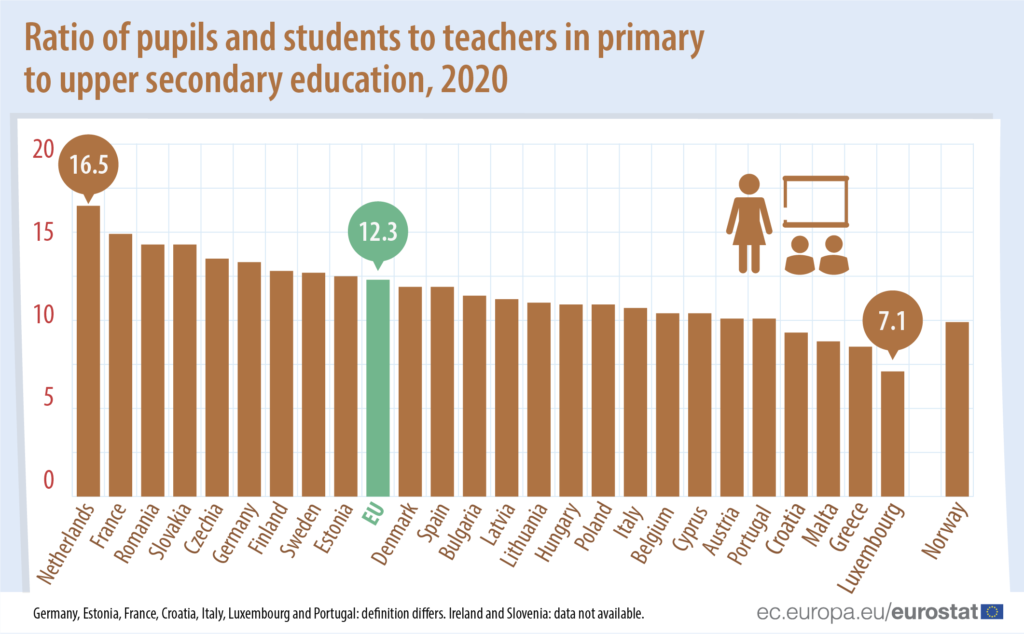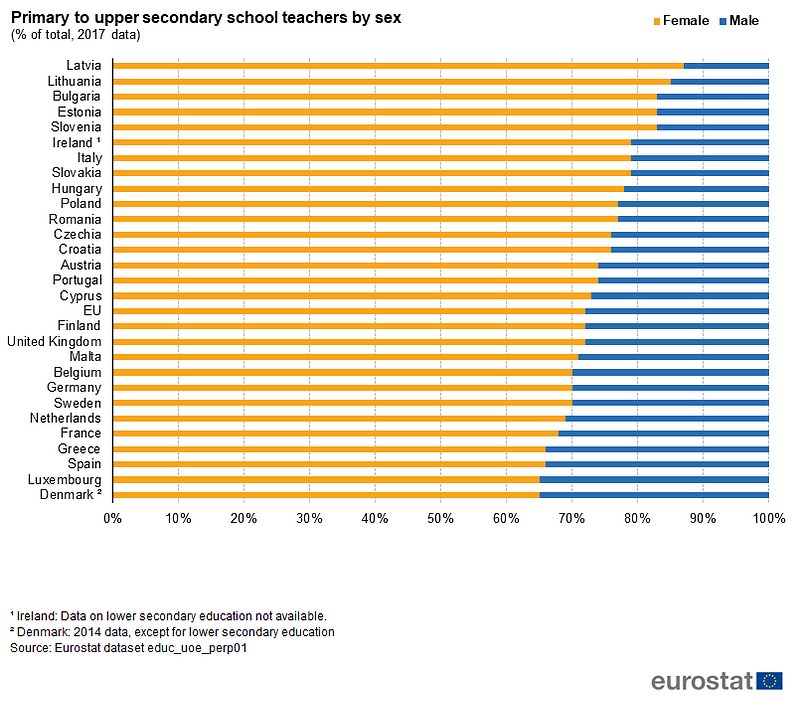Luxembourg’s pupil-teacher ratio ranks 1st in the EU
01 December 2022

Education in Luxembourg
In 2020, Luxembourg averaged 7.1 pupils per teacher, according to Eurostat, the EU statistics agency.
Eurostat has released new figures on the ratio of pupils per teacher in the EU. Throughout the European Union in 2020, the average number of pupils per teacher at the primary, secondary and upper secondary levels – the ratio of pupils and students to teachers – was 12.3.

Luxembourg is ‘best in class’
In 2020, Luxembourg averaged 7.1 pupils per teacher at the primary, secondary and upper secondary level. This puts Luxembourg in first position, followed by Greece (8.5) and Malta (8.8).
The impressive figure is trending in the right direction as Luxembourg’s ratio was 9.0 in 2018 and 10.5 in 2016.
Taking a closer look at the teacher demographics, another positive trend emerges. In a profession that is lead by female teachers, male teachers are gaining in numbers. Since 2017, Luxembourg has had highest proportion of male teachers in the EU with 34%.

More news about Luxembourg:
21st Century Education
Luxembourg considers education as a major cornerstone for the well-being of its knowledge-based society. This is why a ’21st Century Education’ is a key pillar of Research Luxembourg’s research priority areas.
Digitalisation will increase the speed of creation of new job profiles, while existing job profiles might disappear. The fast pace of technological developments therefore implies the need to better monitor the skills gap existing between supply and demand, and to train the population in new, highly dynamic digital skills.
Consequently, in Luxembourg digital tools and technologies have become the content of new training programmes while also being used as a means of delivery for these new contents. In terms of key competencies, transversal skills form a skillset that is needed in order to cope with these fast-paced developments and changes.
Discover more about a ’21st Century Education’
Discover projects and startups from Research Luxembourg researchers related to education and digital learning:















